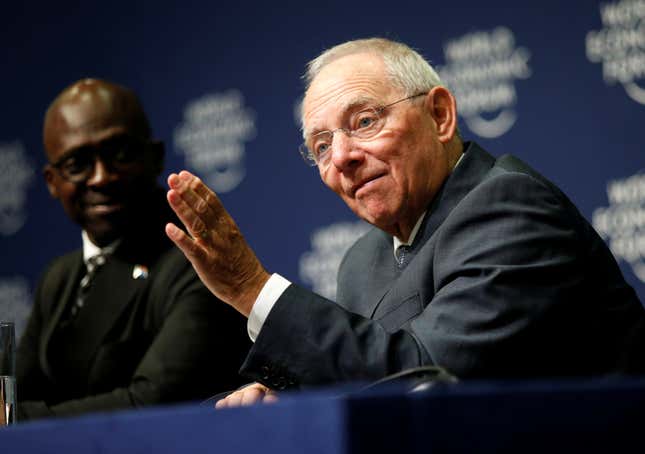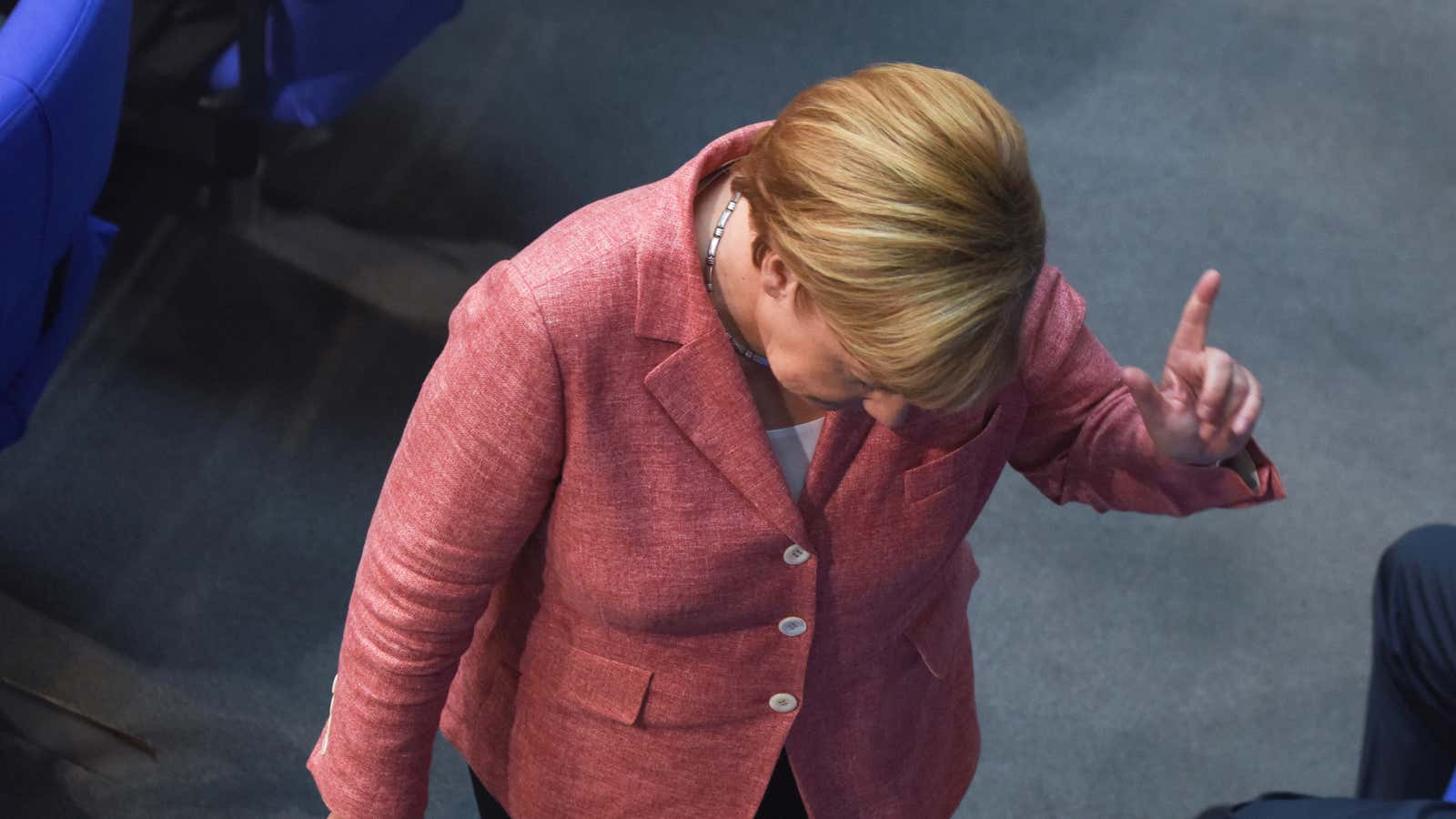As the US and the UK look inward, Germany is training its focus on Africa. The administration of chancellor Angela Merkel—who may now be considered the true leader of the free world—is setting up shop in emerging markets once dominated by the pound and dollar.
At last week’s World Economic Forum on Africa in Durban, South Africa, the German delegation included some of the loudest Afro-optimists, touting the continent’s relative stability in the global economy. This newfound faith in Africa, however, has as much to do with Germany’s place in the global hierarchy as it does with pulling Africa up the trade ranks.
Germany plans to take advantage of this stability through three different policies. Most countries have one. The Germans have created: the Compact with Africa, focused on trade; Pro! Africa, focused on business; and a new “Marshall plan for Africa,” focused on development aid.

“Africa is one of the most important issues for stability and growth in this globalized world,” Germany’s finance minister Wolfgang Schäuble said at the World Economic Forum on Africa.
Schäuble’s promised Germany would use its presidency of the G20 to boost trade through Compact with Africa, which will focus on infrastructure development, especially digitalization.
Schäuble’s colleague, economic affairs energy minister Brigitte Zypries, pushed her new Pro! Africa concept, a 100 million euro project to boost business. Zypries brought with her a contingent of German industry leaders who also planned to visit Cape Town.
In March, development minster Gerd Mueller launched his “Marshall plan,” modelled after the post-Second World War strategy for rebuilding. The plan has been criticizied for creating “unrealistic expectations,” but African leaders have welcomed the idea of creating jobs to keep young Africans from taking the “back way” and illegally migrating to Europe.
Such policies may be Merkel’s way of using economic diplomacy to balance domestic pressure in an election year, while also juggling a fast-changing international environment. Merkel’s willingness to welcome foreigners has hurt her popularity among her own constituents so convincing more migrants to stay home—by bettering the economy—seems like a win-win. Simon Schaefer of Deloitte Africa has noticed a shift in Germany’s language around Africa: more use of cooperative words like with than for.
But the German chancellor seems to be looking beyond her office. A more visible presence on the continent will also strengthen Germany’s soft power. While companies such as Volkswagen have long operated in Africa, the German brand has never achieved the same historical prestige as US businesses or the recent visibility of Chinese influence. To make a mark, Germans will have to get to know their African customers better.
“International businesses should no longer see Africa just as a consumer market or source for commodities, but also a continent with manufacturing potential,” said Schaefer, adding that German expertise could be bartered for long-term market access in both directions.
